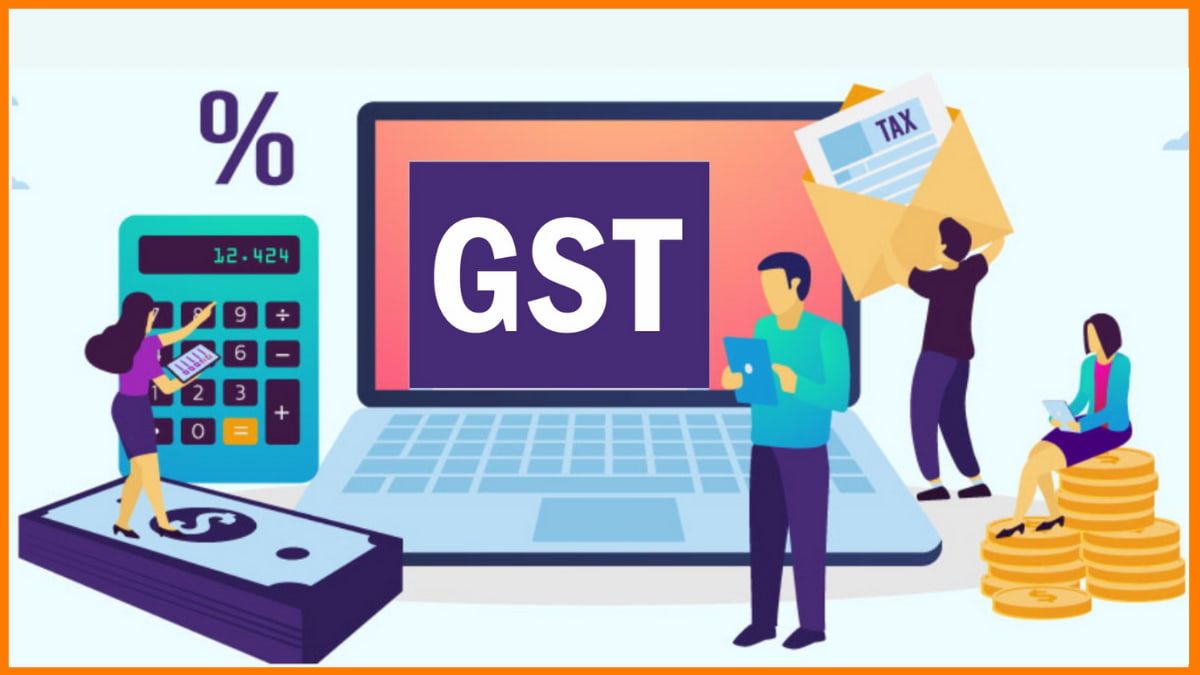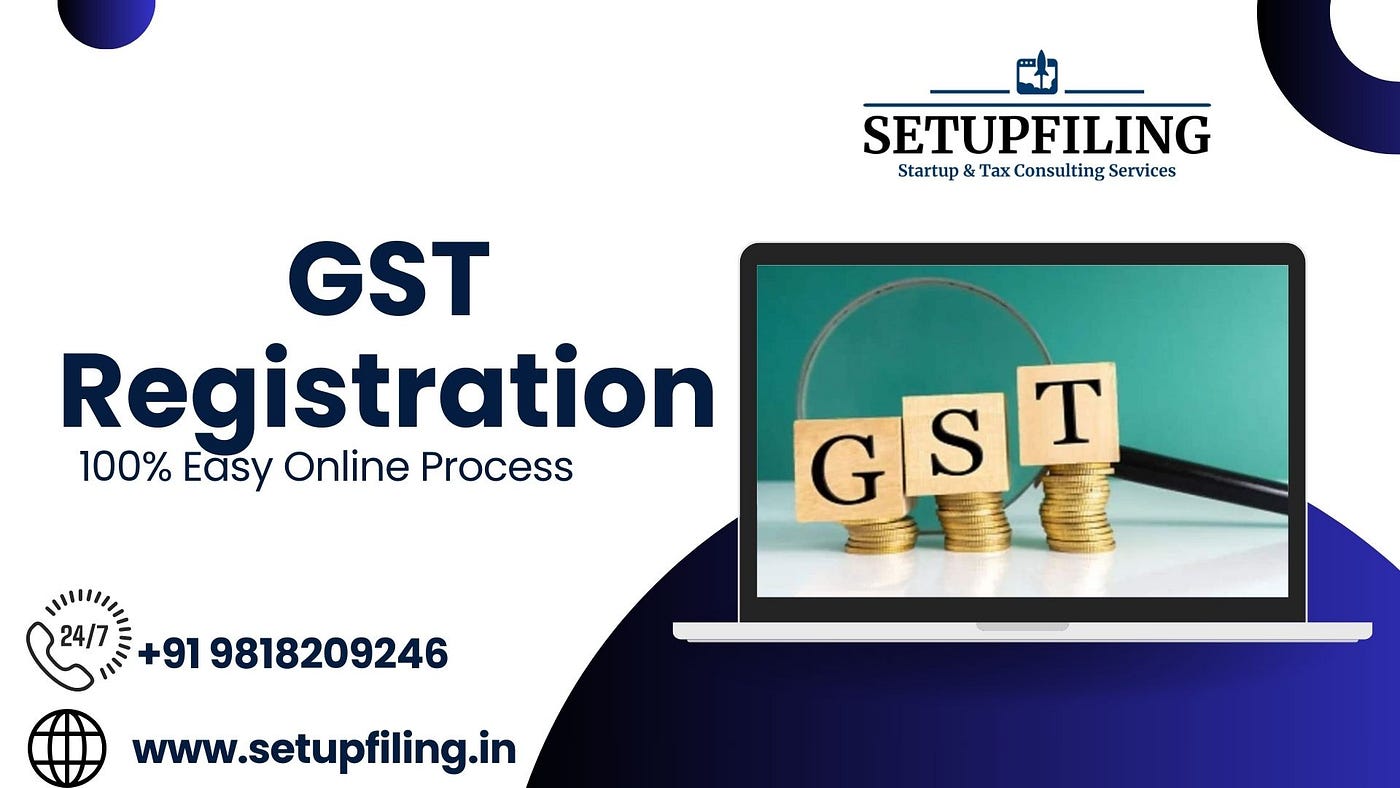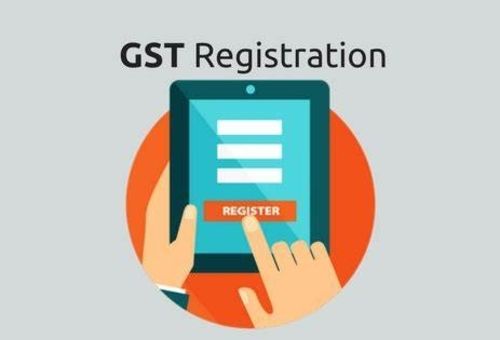Browsing the Complexities of GST Enrollment: Specialist Tips and Finest Practices for Easier Conformity
Browsing the intricate landscape of Item and Services Tax (GST) enrollment demands an eager understanding of the developing regulative framework and thorough interest to information. As organizations aim to make certain conformity and avoid risks, specialist assistance and finest techniques can serve as important compass factors in this complex terrain. From analyzing enrollment requirements to using technical devices for streamlined procedures, the trip in the direction of smoother GST compliance is nuanced and complex. Keep tuned to discover essential techniques and understandings that can help companies steer through the complexities of GST enrollment with skill and self-confidence.
Understanding GST Enrollment Demands

Along with turn over limits, businesses taking part in interstate sales or providing taxable solutions may additionally be required to register for GST, also if their turn over is below the suggested restriction (Singapore GST Registration). Comprehending these requirements and limits is important to stay clear of penalties and ensure smooth procedures within the lawful structure
Moreover, companies need to collect and prepare the needed paperwork, such as proof of identification, address, service consolidation, and savings account information, before launching the GST enrollment procedure. Failing to give precise information or satisfy the enrollment due dates can cause fines or other legal consequences. Businesses must stay notified concerning the details GST registration requirements applicable to their operations to maintain conformity and prevent potential concerns.
Organizing Important Documents
Organizations starting the GST registration process need to diligently assemble and organize the essential documents required for submission. The essential papers usually required for GST enrollment include proof of service registration or identification, address and unification evidence of business proprietors or companions, checking account information, evidence of major workplace, and permission kinds. Making certain that these files are readily available and organized can simplify the enrollment procedure and protect against hold-ups or denials.
To efficiently organize vital documentation, organizations need to develop a central system for keeping and classifying the needed paperwork (Singapore GST Registration). Using digital storage space options can assist preserve easy access and make certain that records are securely stored. In addition, developing a checklist of all necessary files can function as a useful device to track what has been collected and what is still needed for submission

Leveraging Innovation for Performance
Enhancing functional effectiveness through technological assimilation is critical for modern businesses browsing the intricacies of GST enrollment. Leveraging modern technology can enhance processes, minimize mistakes, and make sure timely conformity with GST guidelines. One of the crucial methods technology can assist in GST enrollment is via making use of automated software services. These devices can aid services track sales, create billings, calculate taxes, and submit returns properly. By automating these tasks, organizations can save and decrease hands-on errors time that would certainly otherwise be invested in repeated administrative job.
In addition, technology can promote seamless communication with tax authorities. Online websites and interaction tools allow companies to submit files, resolve inquiries, and get updates in an extra efficient fashion. This not only accelerates the enrollment procedure yet also helps in preserving transparent and dependable interaction with the relevant authorities.
Moreover, cloud-based storage services supply a safe and secure platform for organizations to store and access their financial data, guaranteeing conformity with GST record-keeping needs. By systematizing data storage space and automating processes, services can boost their total performance and accuracy in GST registration procedures.
Proactive Compliance Monitoring

To make sure effective proactive conformity tracking, businesses need to develop robust internal controls, conduct regular audits, and leverage automation devices for real-time monitoring of GST transactions. Regular training sessions for staff members on GST conformity needs can also help in producing a culture of conformity within the company. In addition, engaging with recommended you read tax obligation specialists or specialists can offer important understandings and advice on navigating intricate GST regulations.
Involving With Specialist Experts
Involving seasoned tax consultants can considerably strengthen a firm's understanding and conformity with detailed GST regulations. Specialist professionals bring a wide range of understanding and experience to the table, assisting companies browse the complexities of GST enrollment easily. By leveraging their expertise, business can guarantee exact filings, decrease the risk of mistakes, and stay up-to-date with the most recent governing modifications.
When involving with professional specialists, it is vital to choose experts with a solid performance history in GST compliance (Singapore GST Registration). Try to find experts that have a deep understanding of the appropriate laws and guidelines, along with experience working with organizations in your market. Efficient communication is type in browse around these guys this collaboration, so make sure to plainly specify your assumptions and establish regular touchpoints to go over progression and deal with any type of my website worries
Moreover, expert specialists can supply beneficial understandings and suggestions on optimizing your tax obligation strategy, identifying prospective cost-saving possibilities, and streamlining your conformity processes. Overall, buying specialist working as a consultant solutions can go a long method in guaranteeing smoother GST conformity and preventing expensive errors.
Conclusion
In verdict, navigating the intricacies of GST enrollment requires a detailed understanding of the demands, organization of crucial documents, leveraging technology for effectiveness, proactive compliance tracking, and engagement with specialist consultants. By following these finest practices, organizations can ensure smoother compliance with GST guidelines and stay clear of prospective penalties or penalties. It is vital to remain notified, positive, and attentive in handling GST enrollment to keep compliance and support monetary integrity.
To make certain conformity with tax obligation laws, businesses need to completely understand the complex demands for GST registration. Goods and Services Tax (GST) is a value-added tax imposed on many goods and solutions in a country, making it essential for services to register for GST to prevent legal consequences.Furthermore, businesses have to collect and prepare the necessary paperwork, such as proof of identity, address, service incorporation, and financial institution account details, before launching the GST registration procedure. Organizations ought to stay educated regarding the certain GST registration requirements appropriate to their procedures to keep compliance and prevent possible issues.
The essential documents typically required for GST registration consist of proof of business registration or unification, identification and address proofs of the business owners or partners, bank account information, evidence of major place of company, and permission types.